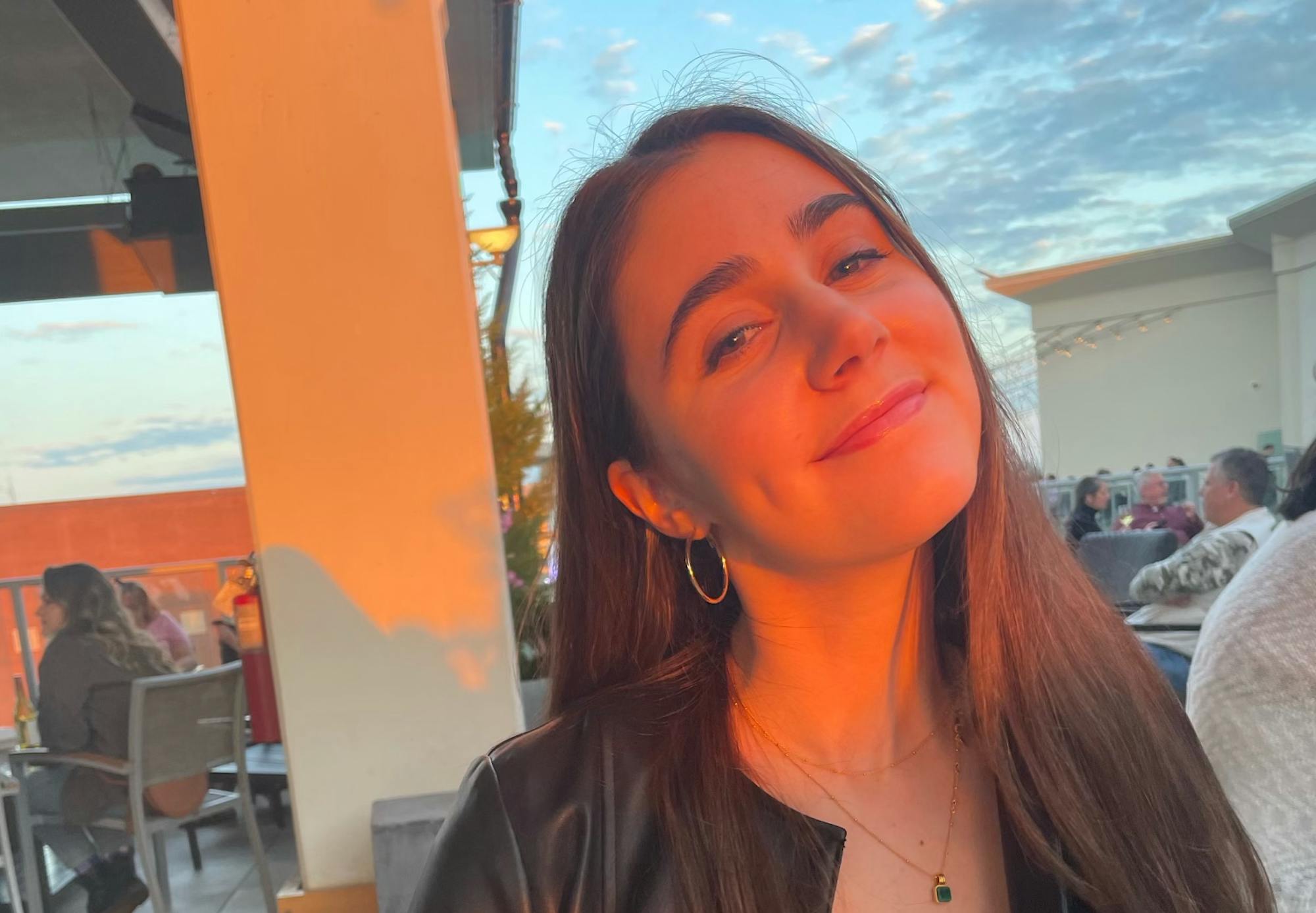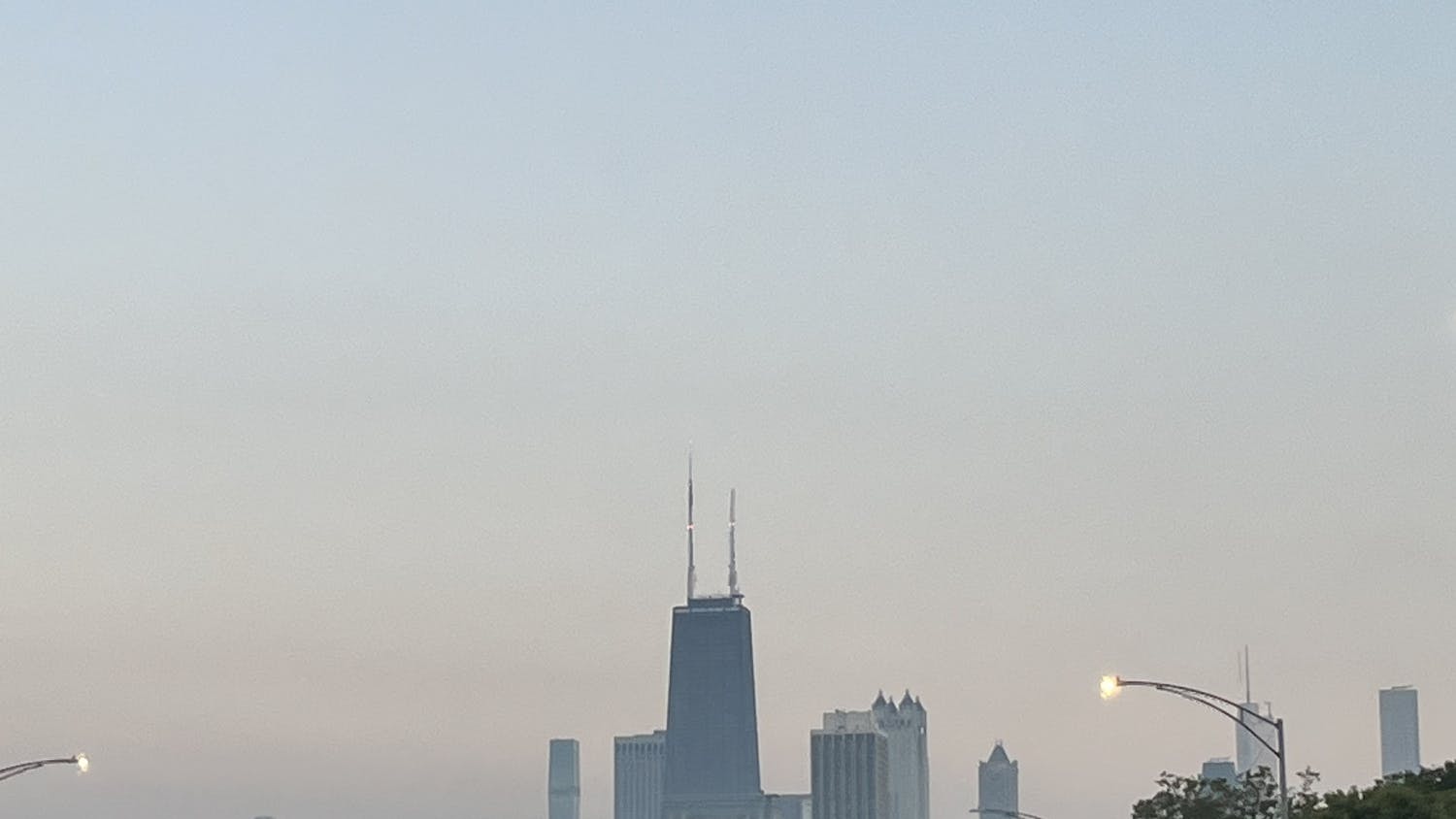This article is featured in the 2022 Commencement & Reunions special issue.
During the summer between high school and college, I could tell that I was supposed to be sad about leaving home. I saw all my friends give their teary-eyed goodbyes, but when it came time for me to hop in my parents’ overpacked SUV, everything just felt right. The truth was, I couldn’t wait to leave high school. I mean, it was high school, after all. Eighteen years in my hometown was more than enough, and I — who usually clung to routines until my fingers were calloused and bleeding — was ready for change. Birds can sense when it’s time to migrate. They recognize the familiarity of the earth’s magnetic field and track the position of the sun; that is to say, they can feel it in their tiny, little bird souls. Apparently, so too can melodramatic eighteen-year-old girls.
And here I am again: melodramatic as ever but twenty-two this time, attempting to put my college experience into words. Eighteen-year-old me would have hoped that I’d write something fun — something about how I left high school and got so much cooler and smarter and hotter and had the time of my life. Maybe parts of that are true (I’ll let you guess which parts), but that’s not the essay I’m going to write. Instead, I’m writing about grief and the ways it has shaped my final year of college.
I was living on a farm in Sharon, Vt. last May when my mother told me the news about my father’s diagnosis. I had long since dropped my neuroscience minor, but I didn’t need a Ph.D. in brain science to know that the words “stage IV glioblastoma” meant that my life would never be the same. I was always overexaggerating events in my life; one bad test grade meant that I was dumb, or one pimple meant that I was ugly. I had a habit of making mountains out of molehills. But this news was a mountain that could put Everest to shame.
Some parts of grieving are predictable, like the denial. When I first heard the news, I didn’t cry as much as I thought I would. I just felt bad for that hypothetical girl whose father was dying from brain cancer, hypothetically. But that girl wasn’t me; she couldn’t be. I woke up the next morning and recalled a horrible nightmare I had, but that was just a bad dream. “Just a bad dream,” I kept repeating to myself. It had to be.
Some parts of grieving are completely and utterly unpredictable, like the things I did to cope: I drove for miles on bumpy dirt roads with the music on full volume, stopping occasionally to pull off to the side of the road and just scream. I obsessively googled journal articles on brain cancer until the pit in my stomach grew too large. I spent a lot of time talking to cows (which is only ever-so-slightly less weird considering I was living on a farm. Turns out, cows are pretty darn good listeners, despite the occasional, interrupting “moo.”). I stopped doing some things that were good for me, and I started doing a few that were not so good.
I took the spring and the summer to be completely unhinged in my grief, and I arrived back on campus in the fall determined to have the most normal senior year possible: no more COVID-19 restrictions and no more talk of cancer. I didn’t tell many people about what was going on. I didn’t like the pitiful looks I knew I’d receive — like I was some three-legged, one-eyed, abused puppy. I didn’t like the way people would talk or the way rumors would spread. I didn’t like it when people asked me how I was. How do you think I’m doing? I also didn’t like it when people didn’t ask me how I was. Don’t they know what I’m going through? How could they not care to check up on me? Most of all, I just wanted to pretend that none of this was real — and the less people knew, the easier it was to pretend.
As guilty as it feels to say this, senior year was one of the best — not just of college, but of life. Some days were so perfect — like the days when the sky was my favorite shade of blue, and I wanted to drink the air and let it intoxicate me. There were moments I wished I could pause and live in forever. On those nights, I’d go to bed with my ribs still toughened from laughter, my cheeks still sunburnt from sunbathing on the Green and my skin still damp from the Connecticut. I’d get so good at pretending that I’d forget what was really happening. For weeks, I’d forget. But then I’d stop too long at a traffic light and be reminded of the daily drives to high school with my father. Or I’d stare too long at the night sky and be transported back to the nights when he’d teach me about the constellations. Or I’d see a grandfather with his grandkids, and my heart would break for the future children of mine who will only get to know him through my stories. On those nights, I’d go to bed writing elegies in my head.
Those self-help books warn you about not letting your grief become you, but I don’t know why. I am a completely different person than I was a year ago. There’s a version of me who’s still in that farm house in Sharon and believes in a kinder world, but she’s not the girl writing this essay. In the past year, I have watched cancer turn my father from a man who could climb Half Dome in Yosemite with ease, to a man who struggles up staircases. That experience has changed me, and I have let it.
My grief has made me angrier but more compassionate. It has made me sadder but kinder, more resilient and more courageous. This new version of me stands up for herself a lot more; she likes herself a lot more. She cries a lot more, but she smiles a lot more, too. My grief is as much a part of me as my freckles or hazel eyes, and for all the pain that it has caused, it has also shown me the depth of my love. I hate what I’ve had to go through; it is cruel, senseless and unfair. There’s not a day that I don’t wish I could change things somehow, but I can try to appreciate what it has taught me.
Nothing could have prepared me for the immense mass of my grief; no one could have shown me how exactly I was supposed to carry it. While I haven’t found ways to lessen the weight of that burden, I have found ways to get stronger. Some days are really great, and others suck monumentally. To keep going, I just have to hope that the good days will outnumber the bad.
As I’m writing this, there’s a flock of birds above me — set into motion, perhaps, due to hunger, or horniness or maybe a menacing kid with a stick. But I’d like to think they just knew it was time to go. That is to say, they felt it in their tiny, little bird souls. Maybe it’s my aversion to change, or maybe it’s my inability to sense the earth’s magnetic field, but this time I can’t tell that it’s time to go. I want roots to grow from the tips of my toes and plant me in Pine Park forever. Leaving feels so final, and I am so awful at goodbyes. Maybe leaving is difficult this time because I know that the hardest parts of my grief are ahead of me, and this campus has been my shelter from reality for the past year. That thought scares me, but it does not stop me — because I know my best days are ahead, too.
Christina Baris is a former Mirror Editor of The Dartmouth and a member of the Class of 2022.




